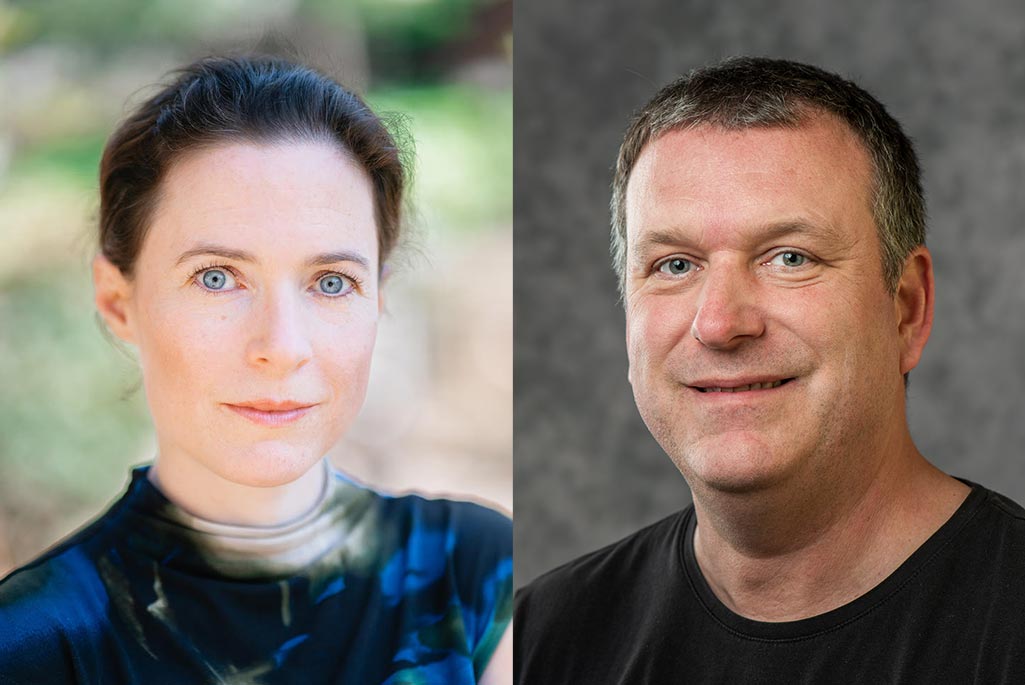NSD scientists Gabriel Orebi Gann and Mathis Wiedeking have been elected 2025 American Physical Society (APS) Fellows, which recognizes advances in physics through original research and publications, and innovative contributions in the application of physics.
Gabriel Orebi Gann, a faculty scientist in NSD’s Neutrinos Program and an associate professor of physics at the University of California, Berkeley, is being recognized by the APS Division of Nuclear Physics for “innovative neutrino detectors for fundamental physics, leadership in the development of the next-generation neutrino experiments, and contributions to the precision studies of solar neutrinos.
Orebi Gann is currently leading the Eos detector development program, demonstrating the capabilities and impact of hybrid Cherenkov/scintillation neutrino detection technology. This program is the lynchpin for the proposed next-generation Theia detector, which would be capable of probing the nature of the neutrino via a search for neutrinoless double beta decay with sensitivity into the normal ordering of neutrino masses. With Eos, Orebi Gann has also been exploring the application of neutrinos to national security, including maritime sensing, and monitoring of activities at test sites to exclude fission yield.
Mathis Wiedeking, a staff scientist and deputy head of the NSD’s Nuclear Data Program, is being recognized by the APS Division of Nuclear Physics for his “key contributions to the study of quasicontinuum structure in atomic nuclei including establishing the existence of the Low Energy Enhancement, developing the Ratio, Shape and Inverse-Oslo methods, and for advancing the study of nuclear physics in South Africa.”
Wiedeking is currently working to fully characterise the quasicontinuum, which is the region of densely spaced excited states inside atomic nuclei, to understand how nuclei respond to electromagnetic radiation and its connection to the creation of elements in the cosmos. His work bridges nuclear physics and astrophysics, revealing how stellar environments forge the elements. In parallel, he participates in international efforts to create and update comprehensive databases that disseminate high-quality nuclear data to the global scientific community, supporting research in fundamental science, energy, medicine, and national security. Recently, Wiedeking was awarded a DARPA grant to explore how nuclear properties may change in high-density plasma environments, advancing the understanding between nuclear physics and plasma science.
